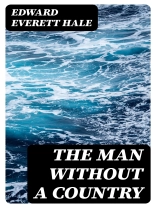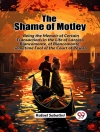In ‘The Man Without a Country, ‘ Edward Everett Hale presents a poignant narrative that explores themes of patriotism, identity, and the profound consequences of one’s choices. Through the story of Philip Nolan, a man condemned to live without a homeland for treasonous words, Hale employs a deeply emotional and accessible prose style, weaving a tale that resonates with the ideals of American nationalism in the post-Civil War era. The novella not only serves as a potent commentary on the social and political climate of the time but also reflects the anxieties surrounding loyalty and belonging in a rapidly changing nation. Edward Everett Hale, a noted Unitarian minister, and social activist, was deeply invested in the issues of his time, including abolition and social justice. His own experiences with civil reform and advocacy for causes like education and equity likely informed his writing of this novella. Hale’s ability to merge fiction with moral inquiry and civic engagement is a hallmark of his literary career, solidifying his place in American letters as both a storyteller and a thinker. Recommended for readers who seek a nuanced meditation on the value of citizenship and the weight of one’s actions, Hale’s ‘The Man Without a Country’ remains a timeless exploration of what it means to belong. This compelling narrative not only engages the heart but also challenges the reader to reflect on their own relationship with their country, making it an essential read for anyone interested in American literature and civic responsibility.
Про автора
Edward Everett Hale (1822–1909) was a prolific American author and Unitarian clergyman known for his contributions to literature, social reform, and ministry. Hale’s literary style often combines elements of realism with a moralistic and didactic tone, reflecting his commitment to both art and ethics. He is perhaps best remembered for his poignant short story ‘The Man Without a Country’ (1863), a patriotic tale that underscores the value of national allegiance and the consequences of its abandonment. Centered around the character Philip Nolan, who renounces his country and is sentenced to live the rest of his life at sea without receiving any information about the United States, the story has become a staple in American literary canon. Beyond this classic, Hale authored numerous other works, including ‘The Brick Moon’ and ‘In His Name, ‘ which further exemplify his narrative craftsmanship and ideological advocacy. His influence extends beyond literature into social action, as he was deeply involved in movements such as the education reform and the anti-slavery campaign. Despite being grounded in the issues of his day, Hale’s work maintains a timeless quality, reminding readers of their civic responsibilities and the power of individual conviction in shaping one’s destiny and the broader socio-political landscape.












